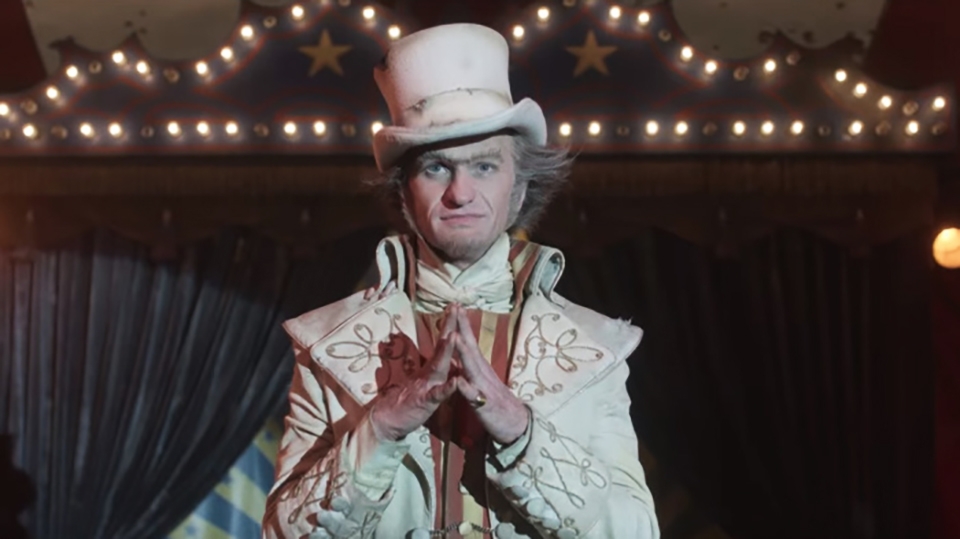
Castlevania’s three main protagonists, Alucard, Trevor and Sypha, in a pivotal battle scene.
Timothy Rush | Staff Writer
11/01/18
Netflix’s original series Castlevania, based on the prolific video game series of the same name, returns with its second season just in time for Halloween.
It follows the protagonists Trevor Belmont (Richard Armitage), Sypha Belnades (Alejandra Reynoso) and Alucard (James Callis) in their quest to kill Dracula (Graham McTavish), who has committed to a genocide of humanity in Wallachia following the execution of his wife, Lisa (Emily Swallow), for witchcraft. Trevor, a warrior of the prolific Belmont monster hunting family; Sypha, magician of the mysterious Speakers; and Alucard, son of Dracula and half-vampire, work together in using their strengths to combat the hellish horrors of Dracula’s demonic army.
The first season, with only four episodes, focused on introducing the plot and characters in an extended introduction to the Castlevania world. While disappointingly short, it worked well in fleshing out the main characters and delivering a good cliffhanger, leaving audiences anticipating the second season.
Building off the extended introduction of the previous season, season 2 aims to expand the story by introducing audiences to Dracula’s court. This season brings a host of new characters, such as the Devil Forgemasters Hector (Theo James) and Isaac (Adetokumboh M’Cormack), responsible for building Dracula’s hellish armies and the only human members of Dracula’s war council, vampire viking Godbrand (Peter Stormare) and the mysterious vampire ruler of Styria Carmilla (Jaime Murray). These characters regularly engage with each other and show the politics on the Vampiric side, with some vying for power and manipulating others to achieve their own nefarious ends.
While fleshing out the world is by no means a bad thing, Castlevania’s second season does it in a way that really pulls you away from the activities of the protagonists. This season comes across as aimless, as it switches between rushed politicking (akin to a summary of Game of Thrones) and the protagonists that the audience is supposed to root for. It’s almost as if the show went through an identity crisis and doesn’t know what genre it wants to be. It switches between a fantasy political/war drama and an action genre depending on whether it’s focusing on the vampires or the vampire hunters.
Along with this expansion, this season has trouble properly showing development in its new bounty of characters. The first season, in having its entirety focused on introducing the story and three main characters, was able to focus and show the layers of how they develop across the episodes. The second season tries to show the development of all the characters it introduces, while still building the relationships of the series’ protagonists, which is difficult to do in a season of onlu eight 21 minute episodes, and it misses the mark on many of them.
Many characters feel woefully underdeveloped given how much the show aims to focus on them. Since it diverts screen time away from the main characters to focus on Dracula’s court, one feels more disconnected from them as the protagonists. Many episodes treat the main party more as a side plot rather than the main focus, and thus what the audience sees of their adventure is cut up even more, along with their development as characters and their relationships with one another. While the relationship between Trevor and Sypha grows, we don’t really see a point where Alucard grows closer to them. The show treats it as though what was originally a contentious alliance is a full friendship by the end.
Dracula’s court, meanwhile, suffers the same. Since the audience was never introduced to the members of the court, or was even aware of its existence in season 1, season 2 has to work to introduce all the necessary elements. Hector and Isaac take the forefront as the humans that Dracula put in charge of overseeing the efforts of his genocide, and so we largely see events play out from their perspective. They are introduced marvelously, but while Isaac is fleshed out well throughout the season as the loyalist to Dracula, Hector largely falls flat as the naive human who is easily manipulated by everyone. And many of the side characters, such as Carmilla and Godbrand, fall pretty flat as well and act more as plot devices to make Castlevania more like Game of Thrones than a unique show with people that have genuine motives, strengths and flaws.
On top of all this, the one thing that must also be addressed is a long running problem with many of Dreamworks’ Netflix original series: the short seasons. While Castlevania’s second season is longer than season 1, it is still only eight episodes long. For all that this season accomplished, it seems as though it was rushed through. Not in the way of that it was a rushed job, but rather that it seems like they crammed as much into eight short episodes as possible, which hurts the overall quality of the plot. Themes such as politics, betrayal, what it means to be human, friendship, family and genocide all seem to be poorly addressed.
Aside from these glaring issues, this season does deliver many good things. Animation is top notch here, and it uses whole palettes of different colors in settings. Just through color direction, one can seamlessly tell what part of an episode is being watched: dark cooler colors with a focus on blues for scenes of Dracula’s court, or warmer colors with focuses on yellow while with Trevor, Sypha and Alucard. Gore is used extensively, just like in the previous season, but this time is often used as a story element to communicate themes of cruelty, sadism and even purity and innocence. Sypha and Trevor’s relationship blooms pretty well from the previous season, and while Hector falls flat, Isaac shows himself to be a redeeming quality from the vampire side of the show.
On top of all of these problems and positives stands one of the best parts of the season, that being Dracula himself. While Dracula was largely played as the vengeful villain in season 1, audiences now see even more of the human side of him. Castlevania shows how he struggles with grief, wanting to live on and how he comes to terms with fighting against his own son, Alucard. As the main antagonist, while there is still plenty to drive the audience to root on against him, he is by far one of the most sympathetic and, ironically, human characters Castlevania has to offer.
Given this, while Castlevania season 2 has some grave flaws that definitely hurt it, it is still worth a watch if you liked the first season or if you like the Castlevania video game series. Where the season delivers well, it delivers really well. Despite its shortcomings, it can still be entertaining and a good watch, and there’s more to come. Season 3 was in production before the release of this season, so there’s still plenty of opportunities and potential for this series to be spectacular.


